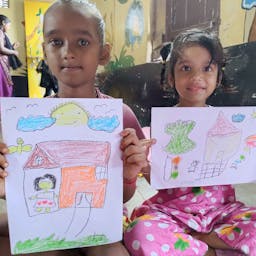Merciless torture faced by the Iranian wives.
Jan 21, 2015
Story
No woman is safe from domestic violence -- no matter what country or culture she lives in. According to a new UN report, one in three women will be raped, beaten, or abused during her lifetime. Part two of our four-part series on the occasion of today's world \"Eliminate Violence Against Women Day\" focuses on Iran, where abuse largely goes unreported and -- officially at least -- unrecognized.
Prague, 25 November 2003 (RFE/RL) -- Sedigheh is an Iranian woman, one of many who was for years subjected to her husband's physical and psychological abuse.
\"I remember once he beat me up so hard that for a week I couldn't leave the house. There were bruises all over my face and I had pain all over my body. I couldn't go out. And also violence is not just physical, some forms of behavior and comments bring us more pain than physical beating,\" Sedigheh said.
Sedigheh finally left home. A step many Iranian women are still not willing to take.
Mehrangiz Kar, a prominent lawyer, writer, and human rights campaigner who lives in the United States, says some interpretations of religion contribute to this way of thinking.
\"In our judicial system there are no laws that prevent domestic violence. On the contrary, in the Islamic penal code there are many points that encourage violence against women in families. One is the issue of blood money. As you know, a woman gets only half the blood money a man gets. This directs the nature of society toward violence because it means that the life of a woman is not equal to the life of a man,\" Kar said.
\"Under the civil code a woman has the duty to submit to her husband and this is called 'tamkin' and that includes submitting to his sexual demands so effectively you have a marital rape exemption under the Iranian law,\" the researcher said.
Few women try to escape a violent home because they are economically dependant on their husbands. And while according to Iranian law men can divorce at will, for women it often requires a long legal battle. Men also have the right of the custody of the children after divorce.
\"The most effective violence against women is the threat to take the children away and because for women, with their motherly nature, having to endure being away from their children is the worst problem and violence, in many cases they give in. They refrain from discussing their problems with their families -- let alone the courts,\" Kar said.
Sedigheh, who experienced domestic violence herself for many years, says after her divorce, her husband took custody of their child and prevented her from seeing her child.
\"[My husband] didn't even let [my daughter] go to school for some time so that I was not able to go there and meet her, and when he was forced to send the child to school he dropped her off and picked her up himself. He also told the principal not to let me see the child. During our life together, I allowed him to beat me if I knew it would stop him from torturing the child. And being away from my child was the worst torture for me. I still have nightmares about those days and nights,\" Sedigheh said.
Kar says in Iran women are also subjected to \"state violence.\" As an example, she cites the Islamic dress code, according to which a woman should cover her hair and body.
\"Any woman who appears unveiled in public -- before they would arrest her, insult her, and put her in prison and also they flogged her -- now the judge can choose between a jail term and a fine,\" Kar said.
The Human Rights Watch researcher says the compulsory Islamic dress code is a violation of women' rights: \"You know you could speak of the 'hejab' as 'state violence' in the sense that it violates women's rights to moral integrity, to her freedom of conscience and to her liberty.\"
Kar says the laws need to be amended to give more protection to women. And she adds that shelters for battered women to go to if necessary should be built across the country. However, she adds the government is opposed to it.
\"Iran's judicial and political system has not accepted this proposal so far. They think the dangers of these types of shelters outweigh the possible benefits. And maybe they think that that there will be an influx of women who are victims of violence and it will lead to a new crisis in the society. The regime is afraid of accepting safes shelters,\" Kar said
Women's rights activists say the relatively high number of runaway girls and the rising number of women who commit suicide suggests domestic violence may be widespread in many families. Shirin Ebadi, Iran's Nobel Peace Prize laureate, and other activists say self-immolation by women is on the rise because of violence and discrimination.
The United Nations says prevailing gender inequality is the main source and breeding ground for the continuing scale of violence against women around the world.
ARE YOU BLINDLY SITTING UP THERE OR ARE YOY LISTENING?????????????????????????




